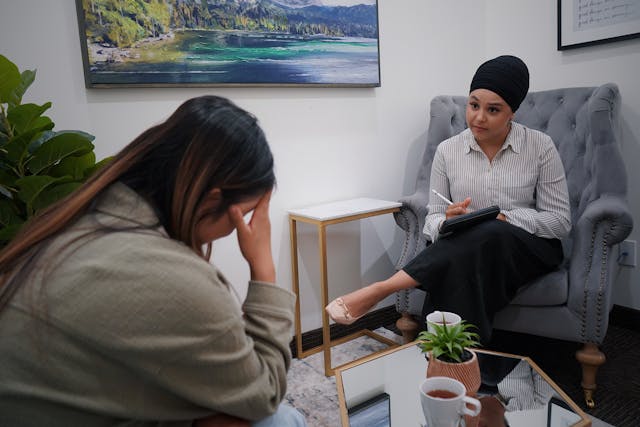Introduction
It is a common misconception that successful healthcare businesses only need hard-working clinical staff. In reality, the administration side of things has just as much responsibility in ensuring processes occur smoothly. When managing a private practice team, it's essential to allocate time to ensure clinical and administrative staff have access to the support and resources necessary for them to do their job well.
If you are a receptionist or have a role that entails greeting patients, you must have a wide array of various key skills to ensure client satisfaction. Additionally, because the receptionist is the first point of contact for patients either looking to book an appointment or coming into the clinic, they have a lot of responsibility concerning communication and efficiency. Without a skilled receptionist, a healthcare business's scheduling, organization, workflow, and general communication will be lacking.
What does a private practice receptionist do?
Although the job responsibilities of a private practice receptionist will differ depending on whether you work in a psychology, physiotherapy, counseling, or optometry practice, there are some general roles that you can expect. Firstly, the receptionist is typically the initial point of contact between a patient and a clinic. They are the people the patients talk to when they book an appointment, and they are thus in charge of ensuring the schedule is optimized for both patients and practitioners.
Visitor management receptionists also greet patients when they come into the practice on the day of their appointment and often give the client intake forms that need to be completed. All of the information a patient provides before their appointment must be uploaded into the practice's system so that the clinician has access to vital data. Additionally, when practices require upfront payments at the time of an appointment, the receptionist will usually guide the patient through this process.
As you can see, a receptionist position is vital in mediating communication between patients and practitioners. Through excellent communication skills, they can ensure that the workflow at a private practice is optimized and that patients and practitioners are kept informed about appointment schedules, cancellations, and payments.
Top skills that every receptionist should have at a private practice
Given the wide range of responsibilities that a receptionist has, certain receptionist skills required for the job will not only make it easier but will also ensure that compliance is maintained at all times.
Make sure visitors feel welcomed
Patient experience is an essential aspect of working as a receptionist. From the moment a patient walks through a clinic's doors, they want to feel safe, comfortable, and welcome, and given that they are the first point of contact, this largely falls to the receptionist. Part of the receptionist's job includes being kind, professional, and patient. It is worth noting that patients may be experiencing a very stressful moment in their lives, and excellent social skills are important.
Has excellent soft skills and emotional intelligence
Although hard skills are important, you shouldn't underestimate just how valuable soft skills are. These will allow you to develop positive (and professional) relationships with clients and engage with them meaningfully. Emotional intelligence covers a broad range of these relationship-developing skills, but we believe the most important one is empathy. Being empathetic towards the people you deal with will establish you as trustworthy and reliable.
Have great communication and phone skills
As a receptionist, you will be in almost constant communication with both patients and practitioners. It is, therefore, essential that you possess fantastic communication and phone skills so you can notify clients and practitioners of important information. Additionally, some of the tasks you must complete (in particular, processing payments) can be tricky to navigate, especially when dealing with difficult patients. Effective communication and problem-solving skills will ensure you get the job done while maintaining good patient relationships.
Be attentive to handling busy situations
Most workplaces experience extremely busy periods of time. Because you are in charge of managing communication between patients and practitioners and helping clients check in and make payments, you need to multitask and not let business distract you from your tasks. As a receptionist, handling busy situations often requires communicating with multiple patients simultaneously. By remaining calm and demonstrating active listening skills to them, you will improve the patient experience and client retention rates.
Has effective time management skills
As I'm sure you've realized by now, receptionists have many different responsibilities. While this ensures the job is always interesting, it also requires exceptional time management skills. Certain tasks should be prioritized, including returning phone calls and ensuring patient medical records have been uploaded correctly. Learning to complete more important tasks first is an integral aspect of time management that may take a little while to perfect, but it will help ensure that administration runs smoothly.
Ability to operate online tools
Many private practice tools like visitor management software are available as healthcare technology develops. You must be highly adept at navigating these systems to do your job well. Fortunately, software used in healthcare businesses has been designed to be intuitive and easy to navigate, meaning you should be an expert in these technical skills in no time.
Should be discreet and be able to keep patient privacy
Maintaining Health Insurance Portability and Accountability Act (HIPAA) compliance and ensuring patients' privacy are always prioritized, essential aspects of working as a receptionist. Patients don't want their medical information or health concerns to be public knowledge, and it is your job to handle this type of communication as discreetly as possible. In addition to being empathetic and kind, you should try to make your patients feel as comfortable as possible, which means never showing any judgment.
Be able to take initiative
Just like any other job, receptionist work requires initiative. In busy environments, managers often don't have the time to relay information or updates continuously. You should feel comfortable taking the leap yourself and figuring out what tasks must be completed.
Takeaway
Being a receptionist at a private practice is about much more than answering phones—it’s about setting the tone for every client’s experience. You’re the first face they see and the first voice they hear, so being friendly and professional makes a huge difference. Strong communication and listening skills are essential for understanding clients' needs and helping them feel at ease. Staying organized is key, too, whether it’s managing schedules, handling paperwork, or keeping the front desk running smoothly.
Knowing your way around administrative tasks can make your much easier. And while multitasking is part of the job, staying focused helps you juggle priorities without feeling overwhelmed. With these certain skills, you’ll support the practice and leave a lasting impression on everyone who walks through the door.
Further reading:




.jpg)
.jpg)
.jpg)

.jpg)


.jpg)
.jpg)

.jpg)





.jpg)
.jpg)
.jpg)
.jpg)
.jpg)
.jpg)